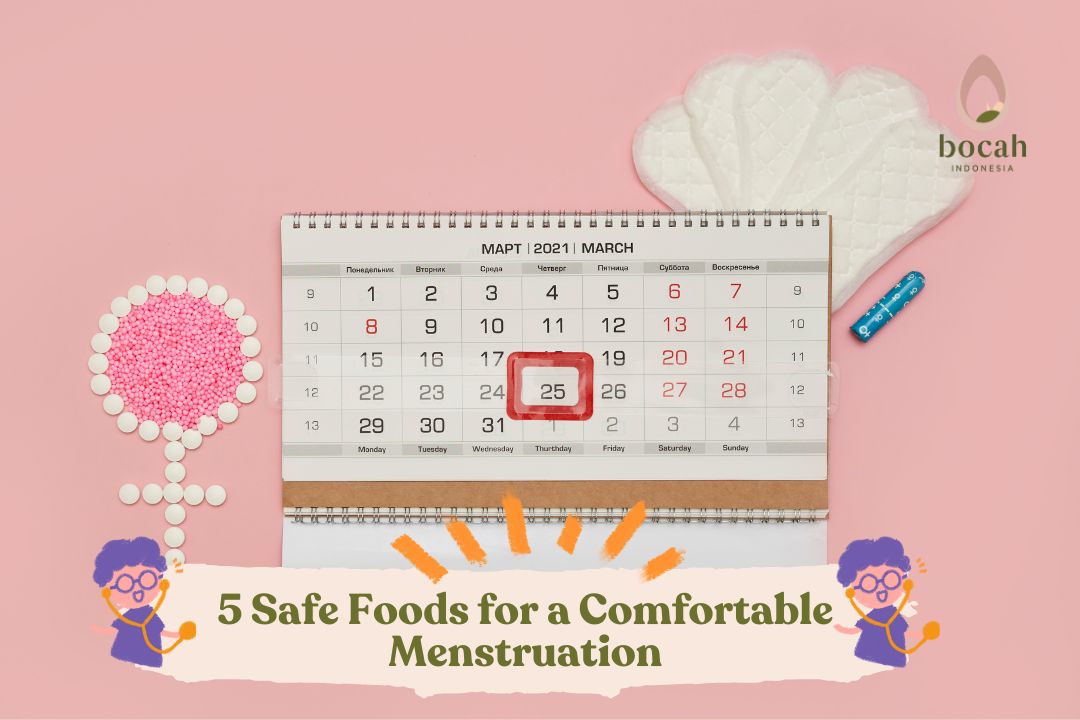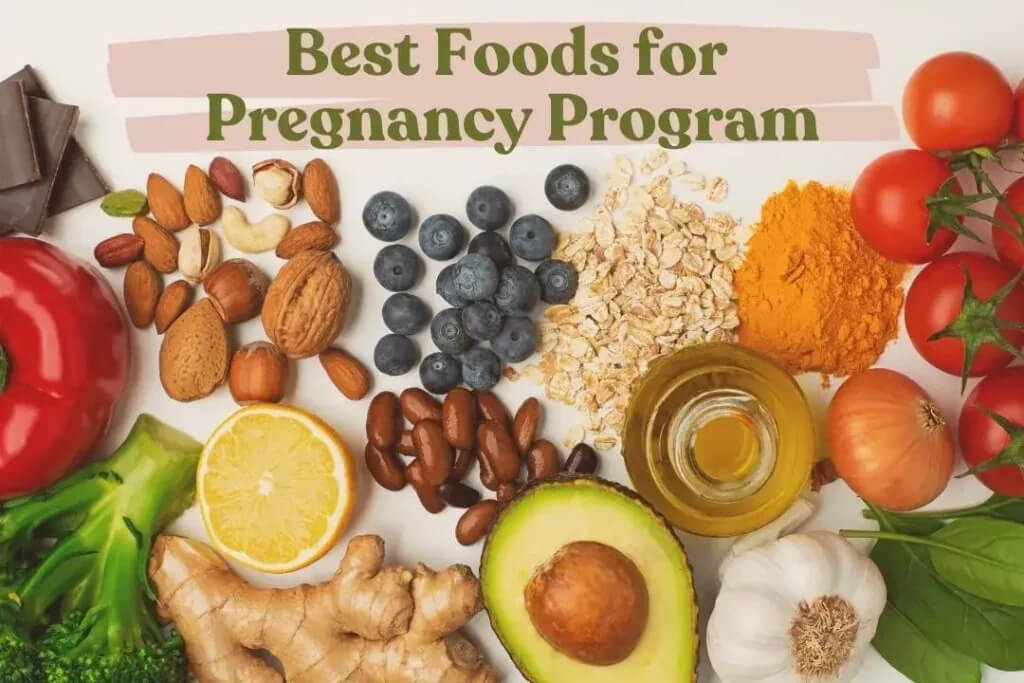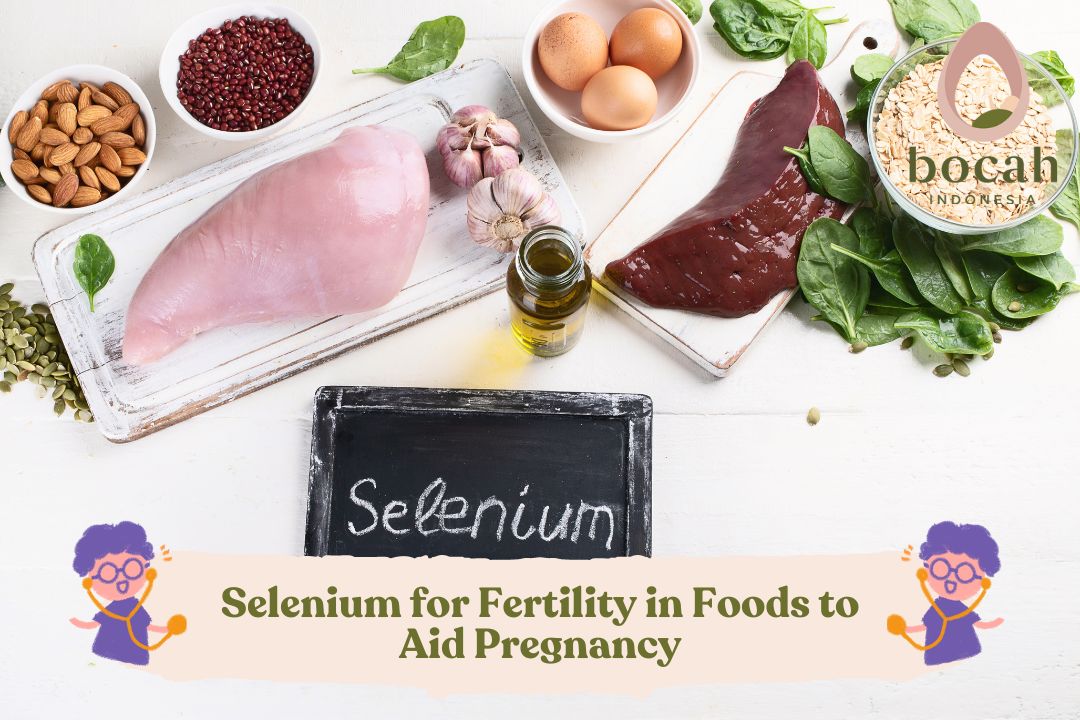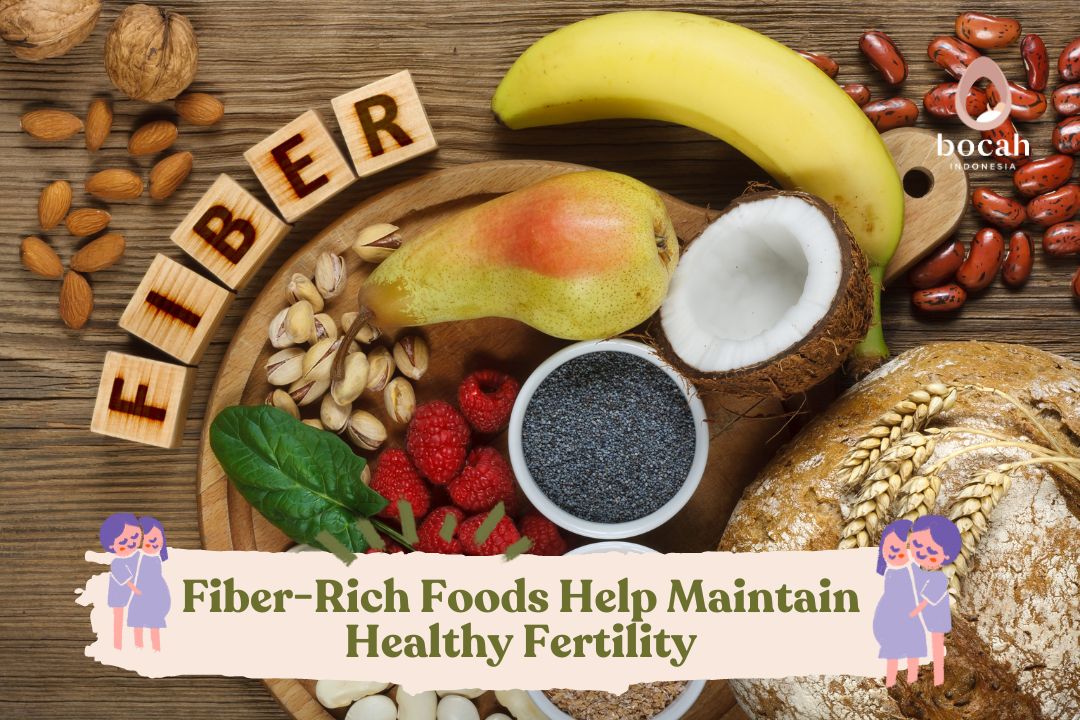5 Safe Foods for a Comfortable Menstruation

You need to know that some foods can affect your menstrual cycle. Curious about what these foods are? Find out about foods that regulate the menstrual cycle here.
When the menstrual cycle runs smoothly, it is a sign that your body is in good and healthy condition. However, if there are disturbances or irregularities, it could be an indication that something needs attention.
One of the factors that can affect the menstrual cycle is the diet and type of food you consume daily. You may have heard the saying, “we are what we eat.” This expression is true, especially when it comes to hormonal health and the menstrual cycle. The food you consume not only provides energy and nutrients for the body but can also affect the hormonal balance that regulates the menstrual cycle.
Foods That Are Good During Menstruation
During menstruation, your hormones undergo various changes. Therefore, it is very important to consume foods that can help regulate the menstrual cycle, such as the following:
1. Foods rich in fiber
Fiber-rich foods play an important role in maintaining hormonal balance during the menstrual cycle. High-fiber foods, such as fruits, vegetables, whole grains, and legumes, help regulate hormone levels by binding excess estrogen and helping to remove it from the body. In addition, fiber also helps stabilize blood sugar levels, which is important for hormonal balance. Examples of fiber-rich foods that are good to consume include broccoli, spinach, and other leafy greens, as well as fruits like apples, pears, and berries. Whole grains like oats, quinoa, and brown rice are also good choices.
2. Foods rich in iron Iron-rich
foods also have very important benefits for your health during menstruation. Iron helps prevent anemia, which can occur due to significant blood loss during menstruation. In addition, iron also plays a role in increasing energy levels and reducing fatigue often experienced during the menstrual period. You can eat foods rich in iron, including lean red meat, liver, and poultry, as well as legumes like lentils and black beans. Dark leafy green vegetables such as spinach and kale are also good sources of iron.
Tanya Mincah tentang Promil?
3. Foods rich in omega-3 fatty acids
Dear, the next good foods to consume during menstruation are those rich in omega-3 fatty acids. Omega-3 fatty acids have various important benefits for the body during menstruation.
One of the main benefits is reducing inflammation, thanks to its anti-inflammatory properties, which can help reduce menstrual pain. In addition, omega-3s can also help balance hormones by regulating the production of hormones that affect the menstrual cycle.
Try consuming foods rich in omega-3 fatty acids such as flaxseed, chia seeds, walnuts, and fatty fish like salmon, sardines, and mackerel.
4. Foods rich in magnesium
Foods rich in magnesium are also very good to consume during menstruation. Magnesium has significant benefits, one of which is reducing menstrual cramps by relaxing the uterine muscles.
In addition, magnesium also plays a role in regulating hormones that affect the menstrual cycle. Examples of magnesium-rich foods include almonds and cashews, pumpkin seeds and sunflower seeds, as well as leafy green vegetables like spinach.
5. Foods rich in vitamin B6
Next, foods rich in vitamin B6 are also very important to consume during menstruation. Vitamin B6 has various significant benefits, such as helping to reduce PMS symptoms, including mood swings and bloating.
In addition, this vitamin also supports the body in producing progesterone, a hormone that is important for maintaining a healthy menstrual cycle. Foods rich in vitamin B6 include bananas, potatoes, and spinach, as well as chicken and fish, and legumes and seeds.
Foods to Limit During Menstruation
Avoiding certain foods during menstruation has various important benefits. One of them is avoiding inflammation and cramps. Some types of food can increase inflammation in the body and worsen menstrual cramps, which are often very disturbing.
In addition, maintaining hormonal balance is also very important, and avoiding certain foods can help maintain the hormonal balance crucial for a regular menstrual cycle.
Examples of foods to limit during menstruation include:
1. High-sugar foods
Excessive sugar consumption can cause unstable blood sugar fluctuations and disrupt hormonal balance. Excess sugar can also increase inflammation, worsen PMS symptoms, and cause mood swings.
2. Processed foods and high-salt foods
Processed foods often contain a lot of salt and unhealthy chemical additives. Consuming high-salt foods can cause water retention, bloating, and discomfort. Salt can also increase blood pressure, which can worsen menstrual symptoms.
3. Caffeine and alcohol
Consuming excessive caffeine and alcohol can worsen PMS symptoms and disrupt sleep. Caffeine can increase anxiety and tension, while alcohol can disrupt hormonal balance and exacerbate bloating and pain symptoms.
Dear parents, maintaining a balanced and nutrient-rich diet is very important to support a healthy menstrual cycle. By consuming the right foods, you can reduce uncomfortable menstrual symptoms and support good hormonal balance.
If you experience problems with your menstrual cycle or unusual symptoms, it is highly recommended to consult a doctor or nutritionist for appropriate advice. Hopefully, this information is useful to support your health and fertility!
Looking for information about pregnancy programs? Visit Bocah Indonesia’s social media to get information from parents who have successfully undergone pregnancy programs!
This article has been medically reviewed by Dr. Chitra Fatimah.
Source:
- Desmawati, D., & Sulastri, D. (2019). Phytoestrogens and Their Health Effect. Open Access Macedonian Journal of Medical Sciences, 7(3), pp. 495–499.
- Houghton, S. C., Manson, J. E., Whitcomb, B. W., Hankinson, S. E., Troy, L. M., Bigelow, C., & Bertone-Johnson, E. R. (2018). Carbohydrate and Fiber Intake and the Risk of Premenstrual Syndrome. European Journal of Clinical Nutrition. 72(6), pp. 861–870.
- Cleveland Clinic (2020). 11 Diet Changes that Help You Fight PMS.
- Mayo Clinic (2019). Water Retention: Relieve this Premenstrual Symptom.
- Sass, C. Health (2016). Eat These 5 Food to Ease Your PMS Symptoms.
- Krupp, A. Healthline (2020). Cycle Syncing: Matching Your Health Style to Your Menstrual Cycle.
- Marcin, A. Healthline (2019). How to Regulate Your Periods: 20 Tips and Tricks.







